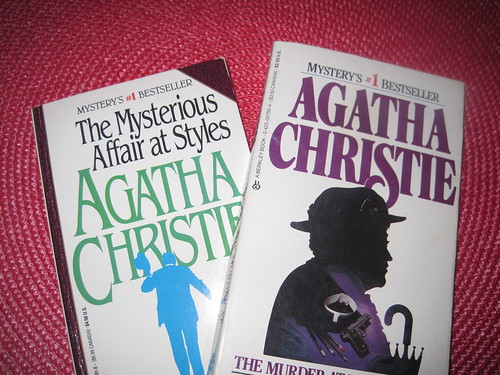6 Ways to Master the Mystery of the Marathon
Note: This is another installment in the Marathon Nation Guest Post Series. I hope you enjoy the fresh perspective!
For many years, I avoided the marathon because of its distance. I couldn’t fathom how I would train for the 26.2 miles, let alone race it. And so I bought a book on marathon training and began my journey. When June sixth, 2004 came around, I toed the line with tens of thousands of others and waited for the starting gun. 2:43:59 later, I had completed my first marathon.
Training for my first marathon taught me a lot of lessons—lessons that I look forward to carrying into my next one.
Set a realistic goal
Finding time to train for a marathon can sometimes be difficult and if you work a 9-5 job and have kids that can make it even more of a challenge. Pick a goal that is realistic for you to achieve in the amount of time you have to train. Don’t forget to consider the time spent recovering and doing the little things (chiropractic, massage, stretching, cross training) that keep your body balanced and injury free.
“The miracle isn’t that I finished. The miracle is that I had the courage to start.”
-John Bingham
Use a plan
Whether your plan comes from a book, Marathon Nation, or you have a coach, it is important to use one. The distances, paces and dates specific workouts are scheduled for are all geared toward peak performance on race day. That being said, all plans should be viewed as adaptive. Be sure to allow yourself the latitude to skip a workout or make it shorter if you are sick, feel over trained or might be coming down with an injury.
“Running is the greatest metaphor for life, because you get out of it what you put into it.” ~Oprah Winfrey
Take care of yourself
Take care of yourself in the months leading up to your marathon. Be sure to eat healthy, get adequate sleep and eliminate as much stress as possible. The effects of good or poor eating, sleeping and stress are cumulative and will affect your training proportionately.
“I had as many doubts as anyone else. Standing on the starting line, we’re all cowards.” ~Alberto Salazar, three-time winner of the NYC marathon
Train your brain
Marathon training is not only physically demanding, but it is mentally challenging as well. I have seen runners crawling across the finish line with nothing but their minds moving them forwards. The longer the distance, the more mental fortitude it will take to cover it. Train your brain for the marathon by performing adequate amounts of long runs, marathon pace runs and threshold runs to simulate the mental demands of the distance.
“Running is a big question mark that’s there each and every day. It asks you, ‘Are you going to be a wimp or are you going to be strong today?'”
– Peter Maher, Canadian marathon runner
Fuel up
Practice hydrating and eating EXACTLY as you would during the marathon. By the time you feel the effects of dehydration and hunger, it may be too late to recover from them. If possible, find out which electrolyte replacement drinks and foods will be available at the race and at what miles the aid stations will be placed. Set up your own aid stations to mimic your findings.
During your marathon pace and long runs, be sure to stop at each one and at least drink up. You may not consume a full cup, but should consume at least some liquid. Go for electrolytes over water. Drinking too much water can cause problems.
“Anyone can run 20 miles. It’s the next six that count.” ~ Barry Magee
Race your pace
Participate in races leading up to your marathon. Any race is exciting, and the marathon is no different. Here you can practice not allowing your excitement to cause you to go through those first couple of miles quicker than planned. Consider wearing a watch that calculates speed and distance to help with this. On race day, you may be able to position yourself with other runners who plan to run the same pace. Many marathons have signs posted at the start to indicate the pace of running starting in a particular area.
“Make your last thought before the start of a marathon: ‘If I’m not worried that I’m running a little too slow in the first half, then I’m probably running too fast.'” ~ Jim Fortner
Think positively, adequately prepare and continue to put one foot in front of the other and you will be fine. There are lessons in each experience that we have. The more you run the marathon, the better you will become at it. Even if you don’t always improve your time, the lessons you learn can be carried forward to the next one and next one and next one. It only takes a day to run a marathon; but knowing you have run one lasts a lifetime.
The Author
Lisa H. is the writer behind Ten Bulls Running; A blog for runners who want to grab the bull by the horns by improve their training and racing in a holistic and natural way.







Lisa,
Great article!
I have to congratulate you – your first marathon went pretty well!
After running a marathon, I try to ride a bicycle approximately the half of the marathon distance the next day.
This helps in the recovery process.
Cheers,
Timo